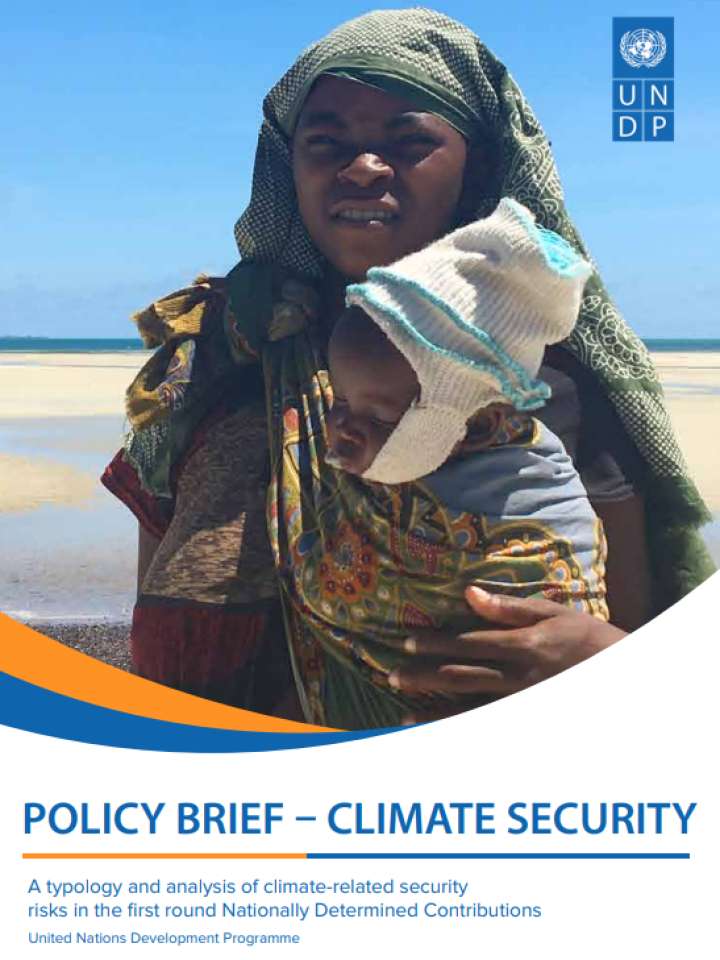A typology and analysis of climate-related security risks in the first round Nationally Determined Contributions
This report shares the results of a study of the first round of Nationally Determined Contributions (NDCs) conducted by the United Nations Development Programme (UNDP), with contributions from the UNFCCC secretariat.
The analysis shows that climate change is recognized by many countries as a matter of national security, but also as a factor that exacerbates the drivers of different types of conflict and security risks. Conflict and insecurity are also described in the NDCs as increasing vulnerability to climate change and/or as being potentially disruptive to climate action and to the achievement of NDC targets, including in post-conflict situations.
How countries have addressed climate-related security risks in their NDCs can also inform the integration or mainstreaming of climate security dimensions into policy, planning, strategy and programming on both climate change and peacebuilding. Several points are noted in this regard:
- Conflict and insecurity are an obstacle to climate action
- Progress towards peace alone is not necessarily conducive to climate action
- Climate-proofing of post-conflict stabilization and peacebuilding efforts is needed
- The co-benefits of adaptation for sustaining peace still need to be better understood, but more attention is also needed to the interlinkages between energy security, mitigation and peace
- Transboundary climate-related security risks need to be better accounted for where relevant
Explore further
